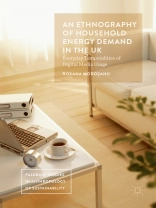This book challenges the ways we think about human agency by looking at the creativity, ethics, and capacities for social transformation that are embedded in simple actions of “doing”. Stemming from ethnographic research with families in the United Kingdom as part of a wider interdisciplinary project looking at domestic energy demand, this book probes some mundane approaches to time—such as spontaneity, anticipation, and “family time”—and the ways in which they extend ethical imaginations, create new forms of sociality, and engender human agency.
表中的内容
Introduction: The Time We Have–The Time We Make.- 1. How the Light Gets In: A Theoretical Framework for “Ordinary Agency”.- 2. Encountering Middleborough: Impressions, Methods, and Tacit Knowledge.- 3. Meeting the Families.- 4. Spontaneity.- 5. Anticipation and the Mother-Multiple.- 6. “Family Time” and Domestic Sociality: Forms of Togetherness and Independence with Digital Media.- 7. Saving Energy in British Homes: Thoughts and Applications.
关于作者
Roxana Moroşanu Firth is a social anthropologist working in the fields of computing, sustainability and innovation. She is a Research Associate at the Engineering Design Centre, University of Cambridge, UK, and Research Fellow at the Centre for Computing and Social Responsibility, De Montfort University, UK. Her work has been published in numerous peer-reviewed journals, such as Design Studies, The Cambridge Journal of Anthropology and Cultural Anthropology.












